Germanwings co-pilot crash prompts safety review
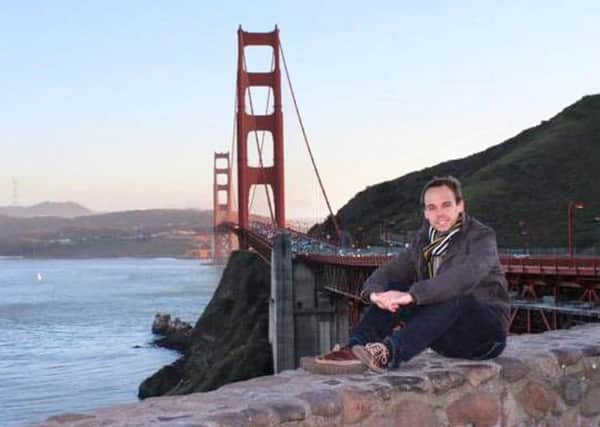

Aviation security experts said the shocking new details surrounding the final moments of the Airbus A320 demonstrated the need for strict procedures to be put in place in order to reassure passengers.
Prosecutors in Marseille said yesterday that Andreas Lubitz, above, the co-pilot of Flight 9525, barricaded himself in the cockpit and “intentionally” flew it at full speed into the mountain. All 144 passengers and six crew on the Barcelona to Dusseldorf flight died after the eight-minute descent.
Advertisement
Hide AdAdvertisement
Hide AdGerman chancellor Angela Merkel said the findings gave the tragedy a “new, simply incomprehensible dimension”.
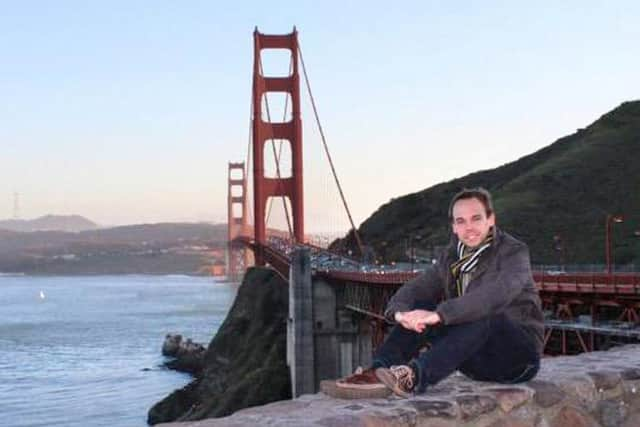

In the wake of the revelations, two airlines, EasyJet and Norwegian Air Shuttle, said they were changing procedures so that two crew members would be in the cockpit of their flights at all times.
The “rule of two” is routine among US carriers. The US Federal Aviation Authority said the procedures include a requirement that “when one of the pilots exits the cockpit for any reason, another qualified crew member must lock the door and remain on the flight deck until the pilot returns to his or her station”.
A qualified crew member could be a flight attendant or a co-pilot.
The Civil Aviation Authority (CAA) said all UK airline pilots undergo regular medical assessments which look at their mental health. But pressure was last night mounting on the aviation industry to ensure that further safeguards were put in place to prevent a similar tragedy.
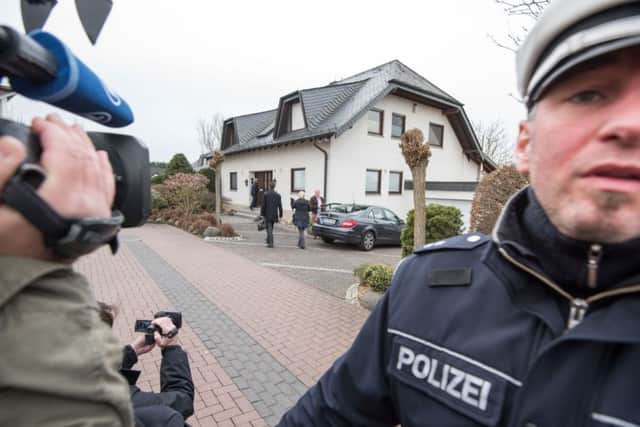

After studying the final minutes of Flight 9525, Marseille prosecutor Brice Robin said the pilot left the cockpit, presumably to go to the lavatory, and then was unable to regain access.
In the meantime, Lubitz, a 28-year-old German, manually set the plane on the descent that drove it into the mountain. He said the captain of the plane knocked several times “without response”. He said the door could only be locked manually.
“The most plausible, the most probable, is that the co-pilot voluntarily refused to open the door of the cockpit for the captain and pressed the button for the descent,” Mr Robin said.
Advertisement
Hide AdAdvertisement
Hide AdHe said the co-pilot’s responses, initially courteous in the first part of the trip, became “curt” when the captain began the mid-flight briefing on the planned landing.
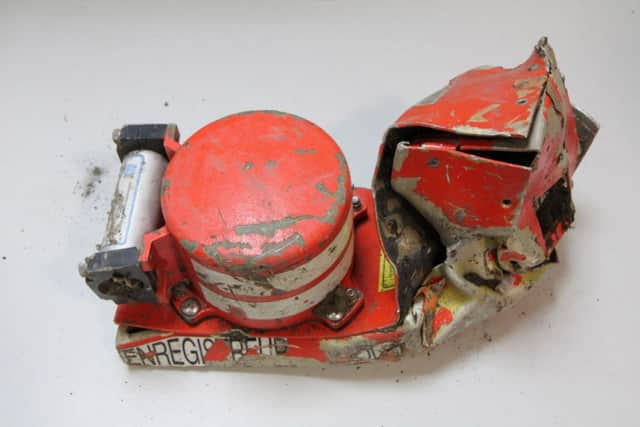

The information was taken from the black box cockpit voice recorder, and Mr Robin said the co-pilot said nothing from the moment the senior pilot left.
“It was absolute silence in the cockpit,” he explained. “Except we could hear him breathing. He breathed normally.”
During the final minutes of the flight’s descent, pounding could be heard on the cockpit door as alarms sounded, but the co-pilot’s breathing was normal the whole time, Mr Robin said.
“It’s obvious this co-pilot took advantage of the commander’s absence. Could he have known he would leave? It is too early to say,” he said.
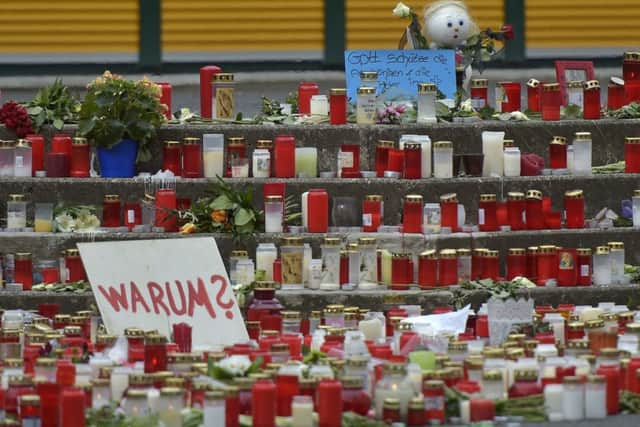

Germanwings’ parent company Lufthansa said the cockpit door on the A320 was fitted with a keypad on the outside. In the event of a pilot in the cockpit alone being incapacitated, an emergency code can be punched in which would allow automatic entry after 30 seconds. But the cockpit pilot can override this within the 30 seconds.
Norman Shanks, a visiting professor in aviation security at Coventry University, said: “It appears that the co-pilot on the Germanwings Airbus A320 refused to have the door opened. It had to be a deliberate act.”
Prof Shanks said that while locked and strengthened cockpit doors were introduced following the 11 September terrorist attacks, the “heightened security” had created another problem in the form of “apparent pilot suicide”.
Advertisement
Hide AdAdvertisement
Hide AdHe said: “Airlines have got to move very quickly to reassure passengers. They have to say that there is a problem and we have procedures in place to prevent this. They don’t have to say what those procedures are but the most obvious one would be to have a minimum of two people in the cockpit at all times.
“Pilots won’t like it, as they will feel they are being distrusted. Airlines, purely on cost grounds, have for some years had just the two pilots on most short-haul flights. They are going to have to absorb the cost of bringing back the old-fashioned flight engineer to fly with the pilots.”
He added: “One other way of preventing incidents such as the French Alps crash would be for pilots to undergo regular psychological examinations – something that they would certainly object to.”
Tristan Loraine, a former BA captain who retired in 2006 after 20 years flying airliners, said he had no psychological profiling during his career. “The medical was having an ECG, peeing in a bottle, having a blood test and all that.” It did not touch on mental health, he said.
Carsten Spohr, the chief executive of Lufthansa, said the company “choose our staff very, very carefully”.
He said the airline had no indication of why the co-pilot would have crashed the plane and that pilots undergo yearly medical examinations, which do not include psychological tests.
However, assessments of a pilot’s mental state form part of the recruitment process, Mr Spohr said, adding. “We not only take into account their technical knowledge but also the psychological aspect of our staff.”
As scrutiny of Lubitz’s background and personal life intensified, Mr Robin said he did not have any details on his religion or ethnic background, but did not expect any answers to emerge from such areas of inquiry. He said the co-pilot was “not listed as a terrorist”.
Advertisement
Hide AdAdvertisement
Hide AdGermany’s top security official said that there were “no indications of any kind of terrorist background” to the Germanwings crash. Interior minister Thomas de Maiziere said German authorities checked intelligence and police databases on the day of the crash, and Lufthansa told them that regular security checks also turned up nothing untoward on Lubitz.
A spokesman for the CAA said last night: “Following the details that have emerged regarding the tragic Germanwings incident, we have contacted all UK operators to require them to review all relevant procedures.
“All UK airline pilots undergo extensive and regular medical assessments to determine their fitness to hold a licence. As part of this, examiners are required to assess a pilot’s mental health at each medical examination which, for an airline pilot flying with at least one other pilot, is undertaken annually.”
He added: “These detailed medical assessments are in line with international aviation standards. We will continue to monitor the situation as the investigation develops and our thoughts remain with the friends and relatives of all those affected by this tragic incident.”
FOLLOW US
SCOTSMAN TABLET AND MOBILE APPS